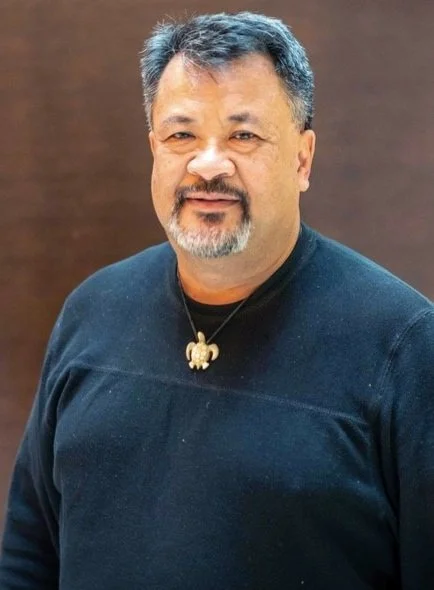Edith Woodley
Edith Woodley was raised on the Wind River Indian Reservation in Wyoming and is a graduate of Bacone Indian College, Muskogee, Oklahoma. As a student, Edith was elected Miss Bacone Indian College, Indian Princess, representing the institution for one year. In addition to being a Shoshone tribal member, Edith also has Choctaw, Paiute, Crow, Flathead, Blackfeet and Mohawk lineage. Being raised on a Native American Reservation, gives her the needed insight into a life and culture that must be experienced to be understood.
randy woodley
Randy Woodley is a Cherokee descendant recognized by the Keetoowah Band. Dr. Woodley has a Ph.D. in Intercultural Studies. As a former tenured, and Distinguished Professor of Faith and Culture, and Director of Intercultural and Indigenous Studies, he has taught courses like Native American Spirituality, Native American History, World Religions, Indigenous People’s Spirituality and Religion, Anthropology, and American History for several decades. Dr. Woodley was Program Director for a Master of Arts in Intercultural Studies he co-designed for Native American students and he served for three years on the Oregon State Department of Education Native American/Alaska Native Advisory Board.
He was instrumental in developing Oregon’s Native cultural curriculum. Randy also served as Dean of Students at Bacone Indian College in Muskogee, OK. Randy has authored numerous books, chapters, and articles related to Native American issues such as “Poverty and the Poor Among Native North Americans” the book, Becoming Rooted: One Hundred Days of Reconnecting with Sacred Earth, and the children’s book, The Harmony Tree: A Story of Healing and Community.
Photo by Karl Clifton-Soderstrom
Lenore Three Stars
As a Lakota woman, Lenore writes and speaks from a Native perspective on decolonizing and indigenizing. After decades of Western religious formation, it was inevitable that she would yearn to relate to Creator and the world around her through a more balanced Indigenous worldview. Her people are Oglala Lakota on her father’s side and Minnecoujou Lakota on her mother’s side. Their ancestral lands include He Sapa, the Black Hills of South Dakota.
Lenore retired from the U.S. Department of Education after a 30-year career of investigating civil rights complaints in educational institutions. She moved closer to her takojas (grandchildren) and loves being an active unci (grandmother) in their lives. Lenore was appointed to the Washington State Human Rights Commission by Jay Inslee, Governor (2014 –2018). Lenore’s B.A. is from Fort Lewis College, Durango, Colorado, and her M.A. from George Fox University/ North American Institute for Indigenous Theological Studies, in Intercultural Studies. She speaks extensively and is an award-winning writer. Lenore leads a cohort for women of color called “Decolonizing with Badass Indigenous Grandmas.”
Jim Sequiera
Jim is Kanaka Maoli (Native Hawaiian) who was raised in the Pacific Northwest. His dad is from Lahaina, Maui and mom is from Hilo, Hawaii. They moved to the Northwest to attend college and made Salem, Oregon their home. Jim’s parents made it a priority to raise he and his siblings knowing their stories and traditions and being proud of their Hawaiian heritage and culture. Jim has always been deeply involved with the Hawaiian community locally and returning to the Islands in the summers to spend it with ‘ohana, kupuna (elders), “talking story” and learning more about Hawaiian culture and history.
Photo by Karl Clifton-Soderstrom
Jim is a Kahu (spiritual leader) serving a local church and the Hawaiian community. As a Hawaiian spiritualist he presides at various ceremonies and blessings and as an advisor. Jim has taught on the history of Native Hawaiians in the Pacific Northwest. Being Indigenous, Jim has been invited to sit and learn among other Indigenous Peoples, specifically Native Americans which has broadened his understanding of what it means to Indigenous. There is a deep historic connection between Native Hawaiians and Native American tribes in the Northwest in which has been invited to share. Jim has a Masters of Art in Intercultural Studies from the North American Institute for Indigenous Theological Studies taught by Indigenous professors.
A kupuna once shared knowing the Hawaiian language, protocols and stories are all important, but ultimately what it all comes down to is the ability to think in Hawaiian. Jim thinks in Hawaiian. While new discoveries in Hawaiian culture is ongoing Jim does not consider himself an expert, but look to his ‘ohana and kupuna who serve as a rich wealth of resources to guide and inform him.




